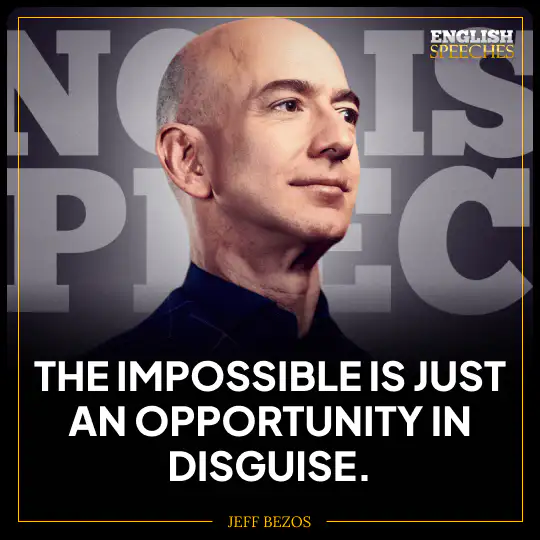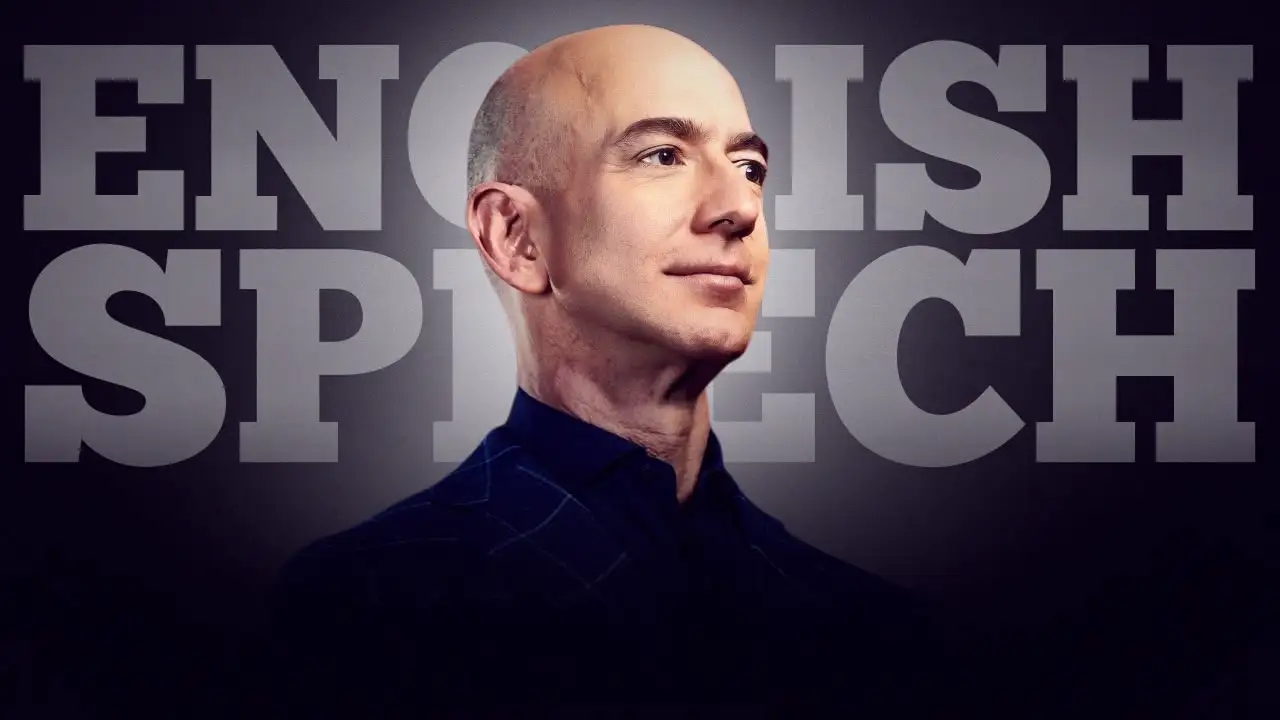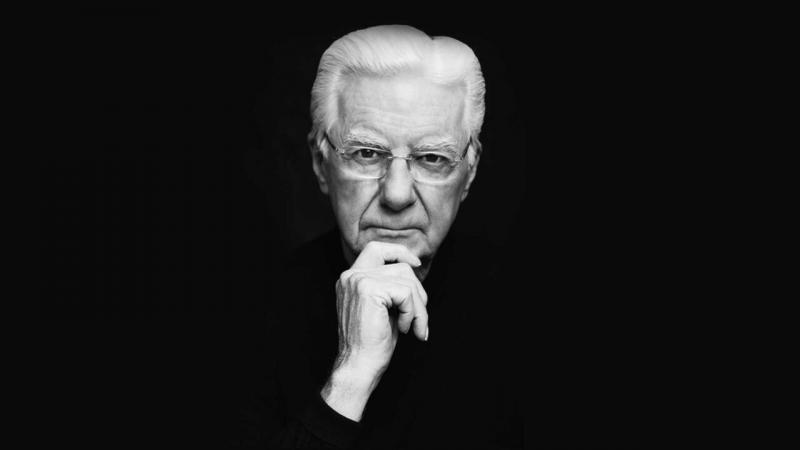Jeff Bezos, founder of Amazon and the Bezos Earth Fund, delivered a thought-provoking speech at the Vatican’s ‘Faith & Philanthropy’ Summit. He emphasized the intersection of faith, science, and leadership in addressing global challenges. Bezos highlighted the urgent need to care for our planet, invest in sustainability, and foster long-term solutions to ensure a better future. His speech serves as a call to action for humanity to take responsibility for the Earth and create lasting change.
A Vision for a Sustainable Future
Vocabulary Highlight:
- Sustainability (noun): The ability to maintain or support an activity over time.
- Example: “Sustainability is key to preserving natural resources for future generations.”
- Philanthropy (noun): The desire to promote the welfare of others, often through charitable actions.
- Example: “Bezos’ philanthropy has contributed to environmental conservation efforts worldwide.”
Grammar Focus: Using Future Tense in Calls to Action
- Example from Speech: “We must address immediate needs and also work on laying foundations for a better future.”
- Explanation: Future tense is used to indicate actions that will happen or need to happen to create long-term change.
- Example: “If we act now, we will ensure a sustainable planet for future generations.”
Key Themes from Jeff Bezos’ Speech
- Balancing Immediate and Long-Term Solutions
- Definition: Addressing urgent needs while laying the groundwork for long-term progress.
- Example: “Bezos emphasized the importance of feeding the hungry today while working on sustainable food systems.”
- Protecting Our Common Home
- Definition: Taking responsibility for the Earth and preserving its resources.
- Example: “Jeff Bezos described Earth as a paradise that we must protect and cherish.”
- The Role of Science and Faith in Problem-Solving
- Definition: Combining scientific advancements with ethical responsibility.
- Example: “He highlighted how faith and science together can guide humanity toward sustainable solutions.”
- Innovation and Exploration as Paths to Preservation
- Definition: Using technological advancements to benefit Earth.
- Example: “Bezos advocates for space exploration as a means of reducing the environmental burden on our planet.”
- Investing in Education and Empowerment
- Definition: Creating opportunities for future generations through knowledge and resources.
- Example: “He praised global education efforts, including his own initiatives in early childhood education.”
Key Lessons and Vocabulary
Vocabulary Highlight:
- Resilience (noun): The ability to recover from setbacks and continue forward.
- Example: “Human resilience has allowed us to overcome major global crises.”
- Conservation (noun): The protection and preservation of natural resources.
- Example: “Conservation efforts are critical in fighting deforestation and climate change.”
Sentence Structure: Using Conditional Sentences to Express Possibilities
- Example from Speech: “If we continue as we are, the next 100 years will be the same, another 20-fold increase in our tax on this planet.”
- Explanation: Conditional sentences describe cause-and-effect scenarios.
- Example: “If we take action now, we will preserve Earth’s resources for future generations.”
Jeff Bezos’ Call to Action
Bezos’ speech serves as a powerful reminder that humanity must act decisively to protect and sustain our world. He urges global leaders to focus on both short-term relief efforts and long-term solutions. By integrating science, faith, and philanthropy, society can create lasting, meaningful change for future generations.
Learning Tips:
- Expand Your Vocabulary: Use the highlighted words in sentences about environmental responsibility.
- Grammar Practice: Form conditional sentences based on Bezos’ speech.
- Pronunciation Exercises: Focus on vocabulary words like “sustainability” and “resilience.”
- Critical Thinking: Summarize Bezos’ key messages in your own words and discuss how they apply to current global challenges.
By reflecting on Bezos’ insights, you can improve your English skills while gaining a deeper understanding of sustainability, innovation, and the role of leadership in shaping the future.
Donwload available for Premium Subscribers
PDF Full Transcript
Explore every word with our concise PDF transcripts.
Audio Version
Immerse in speeches with clear, downloadable audios.
English Lesson
Enhance English skills with interactive speech lessons.
⚬ Free 30-day trial

”The impossible is just an opportunity in disguise.
Download available
for Plus Members
PDF Transcript
Access the full speech in an
easy-to-read PDF format.
Audio Version
Listen and download clear,
high-quality MP3 recordings.
English Lesson
Includes vocabulary
and grammar practice.
Offer ends in:
Offer ended.
Transcript
I cannot think of a better place to confront the problems we face today than here, at the intersection of science and faith. Because of the problems that we face, they’re so great because their solutions are so essential.
The journey… No, sir. That’s one of the problems we face. It’s somewhat easier to solve. The journey we’re on to solve them is going to require the best of science and leadership. And even that won’t be enough. It will also require audacity and innovation. It requires a belief that we are here on earth for a purpose. It requires that we act today for immediate needs, but also that we have our eyes on a further horizon, a horizon much longer than our time here on earth.
The task ahead is daunting. Some might even say impossible. But today, with the humility scaled to the proportion of the challenge, I would like to offer a few words of advice and even a couple of words of encouragement.
Before we set in on the problems of today, I’d like to offer some encouragement from the challenges of the past, a recognition of the remarkable progress that we’ve already made. When people wish for the good old days, when they glamorize the past, they fail to appreciate that life has improved drastically in many ways, even over the past few decades.
When I was born in 1964, the average person lived to only 53. Today they would live to 73. In the same time period, world poverty rates have fallen by 75%, and adult literacy has doubled. And even though world population has grown greatly in that time, food production has risen even more rapidly.
And of course, our progress isn’t constrained to a single lifetime. If you go back to 1822, just 200 years ago, the average lifespan was 29. And 200 years ago, only 12% of people could read. Today, only 12% can’t.
In more recent years, technology has helped us make leaps and bounds. The energy efficiency of our transportation has improved fourfold in just the past 50 years. Computation efficiency has improved by a factor of many millions. And the cost of solar power, it has fallen 99% since 1979, when President Jimmy Carter installed solar panels on the White House roof for the first time.
If we look back on our past with a watchful eye, what we see is a message of hope. We have been confronting challenges since we have been writing history. And we have always found the faith to rise above them.
Nevertheless, once again, it is time to sit down, find our faith, and get to work. Because despite everything that those who came before us have already done, we still find ourselves in a world with astronomical need. Our past achievements must be used to inform today’s problems, but not mask their reality. It is time once again to do what many will say is impossible.
As we all know, in 2015, the world agreed to 17 sustainable development goals for 2030. We gave ourselves 15 years. One would hope that we would find ourselves on track. Unfortunately, we are falling short on almost every goal. This year, the rising cost of food and fuel and fertilizer has been estimated to push another 100 million people below the poverty line. It’s estimated that by the time we reach our 2030 deadline, half of the children graduating from school will do so without the skills that they need to succeed.
Why is this happening? Why are we falling short? It’s in part because we as a species have now grown to occupy every corner of our world, every crevice and peak explored and exploited. The pressure that we’re placing on our natural world can no longer be ignored. Compared to the planet, humanity used to be small. Our impact was minor. But for some time now, we’ve wielded the power to cause significant impact to the planet.
Consider the resources we use. Over the past 100 years, our use of natural resources has increased 20-fold. If we continue as we are, the next 100 years will be the same, another 20-fold increase in our tax on this planet. Just think, by the end of this short century, we will be using 400 times more natural resources and energy than we did in the year 1900, a year when we had already begun to fill our atmosphere with the byproducts of an industrial age.
The earth is a fragile thing, more fragile perhaps than it appears. I saw this firsthand last year when I had the privilege to see our home from space for the first time. I had been warned that the experience would change the lens through which I viewed the world, but I was not prepared for just how true that would be. Looking back at our home from up there, the atmosphere is so obviously tiny, finite. At the same time, it was also the most beautiful sight that I had ever seen.
That moment only deepened my faith that we must do everything we can to protect this place and preserve its beauty. My experience reminded me of something that the astronaut Jim Lovell said when the crew of Apollo 8 was circling the moon. Lovell looked back at the earth and realized something important. “I’d been hoping to go to heaven when I die,” he said. “Now I realize you go to heaven when you are born.”
Lovell was telling us all something crucial. Earth is a paradise, and we must protect it. His Holiness Pope Francis has emphasized the same theme in his encyclical when he refers to earth as our common home and describes the imperative to care for it.
So what do we do? How should we continue down this road of progress? Where should our priorities lie? I ask these questions because many people already have a goal, they have a cause, they have a solution, and they’re passionate about it. They’re ready to take up that torch and sprint down the path of progress, take it as far as they can.
I applaud those people. It’s important to be able to attack a problem with everything that you have in order to address the needs of others. But in order to make lasting, independent change and redefine what is possible for our planet and everyone living on it, we also must look deeper. We must examine how the problems of our time intersect with each other. And sometimes we must step slowly down the path.
So I’ll offer four ideas, four ideas that I use to guide my own work. First, remember that we must do work at both timescales, the short term and the long term. We must address immediate needs and also work on laying foundations for a better future.
Many people today are hungry. I know some of the people in this room are playing an important role in addressing that challenge. As you just heard, my friend Jose Andres is one of those people who serves urgent need. Lauren and I have been so lucky to be able to support him in his journey to feed the people who need it.
His World Central Kitchen has served hundreds of millions of meals to those most in need. And in Ukraine alone, he’s worked with local chefs to quickly serve more than a million meals a day. His work and the work of many others is a wonderful example of when we must run down the path. When people are in immediate danger, when crisis is looming, that is not the time to find the most sustainable solution, the one that will solve the problem, not just in the moment but forever after. That is the time to jump in, get to work, and to do whatever you can to provide short-term relief.
But with the same resolve, we must also work on the long term, fixing problems at the root, creating preconditions for permanent change, change that uplifts, change that creates empowerment and independence.
To my final point, our human challenges are big. But walking side by side, working always together, our human capacity to solve them is even bigger. Don’t lose faith, and never, ever let anyone tell you it’s impossible.
Thank you all so much.






